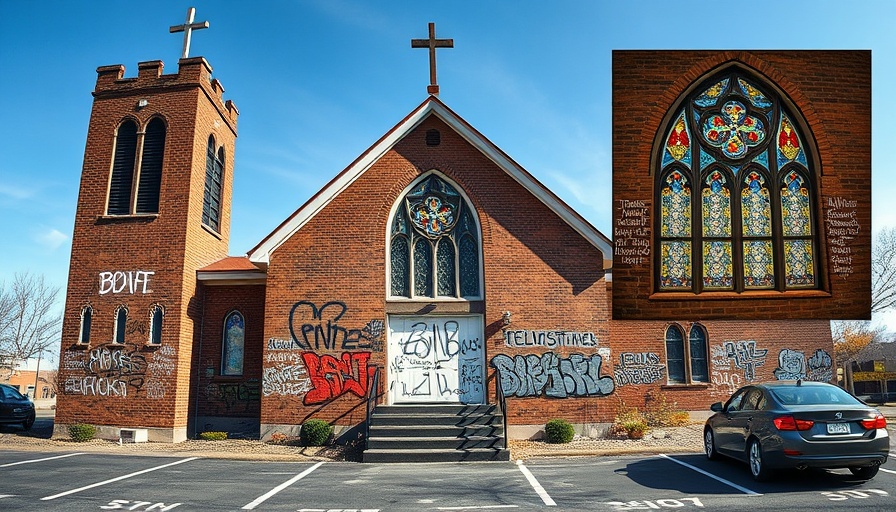
Understanding the Motive Behind the Vandalism
The recent incidents of graffiti targeted at churches in Westland raise significant questions about the motivations of those involved. The Principal of St. Matthew Lutheran School, Daniel Burk, alluded to the desire for attention, suggesting the vandal may have been seeking to voice opinions or frustrations. The messages, ranging from political slogans to Bible verses, illustrate a disturbing blend of personal expression and anarchist sentiment. Understanding these motivations is essential for the community to prevent further incidents.
The Impact of Graffiti on Community Trust
Vandalism, such as that seen at First Baptist Church and St. Matthew Lutheran, not only damages property but also undermines the trust within the community. Churches often serve as anchors of hope and community cohesion; acts of vandalism threaten this stability. The repeated targeting of religious institutions raises alarm and forces congregations to grapple with feelings of vulnerability and fear.
Analysis of Vandalism Trends in Local Communities
Graffiti targeting religious establishments has been on the rise, not just in Westland but throughout the nation. Such acts have historically signified underlying tensions in communities — whether that involves social justice issues, political strife, or cultural clashes. In many cases, the perpetrators have been identified as individuals seeking to make a statement rather than simply expressing malice.
Exploring Police Responses and Community Safety Measures
The Westland Police Department's acknowledgment of multiple reports of vandalism indicates a need for more robust strategies to protect vulnerable sites. Enhanced surveillance, community watch programs, and educational efforts about the impacts of graffiti can equip local residents with the tools needed to address this issue. Engaging the community for ideas on safety measures could foster a stronger bond between residents and law enforcement.
Ways the Community Can Respond to Vandalism
Communities often respond to vandalism in varied ways — from convening dialogue sessions to repainting defaced areas as a means of reclaiming spaces. Local leaders and residents must unite to discuss prevention strategies and restore a sense of security. By organizing community clean-ups, fostering dialogue about local issues, and creating art projects, residents can turn a destructive act into an opportunity for healing and unity.
As the Westland community navigates these troubling events, it's essential to approach the situation with empathy and a desire for understanding. Encouraging conversations about the underlying issues that lead to acts of vandalism may open pathways to constructive solutions. Addressing the concerns of all community members while advocating for positive dialogues can ultimately strengthen the community fabric. Let's take this opportunity to galvanize efforts toward healing, awareness, and proactive measures against vandalism.
 Add Row
Add Row  Add
Add 




 Add Row
Add Row  Add
Add 

Write A Comment